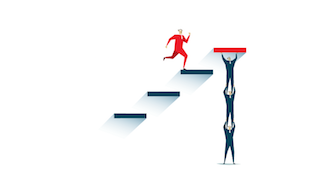

Understanding personas will allow organizations to unlock their workforce’s potential, according to new research by Microsoft Canada.
The study identified four distinct workplace personality types, or personas, each with different working styles and preferences. It reinforced how essential it is for leaders to understand how different employees prefer to work so their potential can be discovered. With that knowledge, business leaders can equip employees for success, noted the study.
Read: Creating a thriving workplace with data, personalized employee benefits
“We did a survey last year trying to understand the intersection of people and places in the workplace that people like to be part of,” says Jordan Sheridan, general manager of modern workplace at Microsoft Canada. “We wanted to to build on that and understand more how people like to work and specifically the types of people you see within the work environment and where that additional intersection point might come from.”
Looking at a number of cross-generational factors in the workforce, the study aimed to determine, within those generations, the different personality types, as well as the tools, processes and places that allow employees to do their best work.
Across age, gender, geography and job description, four distinct workplace personas were revealed when it comes to work style preferences and technology requirements:
- The connected builder. Characterized as ambitious, hard-working and passionate about their job, this person is motivated, focused, organized and busy.
- The autonomous problem solver. Characterized as loving teamwork, comfortable in the office or working from home or in a client’s space.
- The creative connector. This persona, which loves working with others, thrives on the inspiration and creativity that comes from being part of a close-knit team, but are also more focused and productive when working alone.
- The independent ally. This persona is in the office every day, but also appreciates their space and needs their own environment to properly focus. However, they like that environment within the broader office context.
While most (68 per cent) employees surveyed found teamwork great for motivation and inspiration, 71 per cent said they also value the quiet and focus that can come from working alone. Half (50 per cent) said they’re most productive when working alone.
Read: Personality-based seating charts boost productivity: study
Nearly two-thirds (65 per cent) said having the best and most up-to-date technology at their disposal for work is important or somewhat important to their overall satisfaction with their work.
As well, nine out of 10 employers said they believe empowering employees to collaborate with each other regardless of location makes for a successful workplace, while 87 per cent noted the importance of allowing employees to be their most creative selves.
For business leaders, it’s crucial to recognize and understand personas in order to equip employees to be their most effective in the workplace, noted the report, so each employee is as engaged, collaborative and creative as possible.
Read: Canada’s growing gig workforce highlights need for portable benefits plan: report
There’s no one-size-fits-all solution, says Sheridan, noting that’s one of the major themes she wants business leaders to take away from the study. As well, there’s a differentiator employers can unlock to understand the generations and personas in the workplace. Creating those places where employees can come together to do their best work is important, he says.
“Any data you can use that helps you better understand employees and create that intersection between people, process, tools and places that allows them to feel most comfortable in doing the best work they can do, unlocks a level of creativity and collaboration, and therefore productivity, that can be a real business differentiator.”
